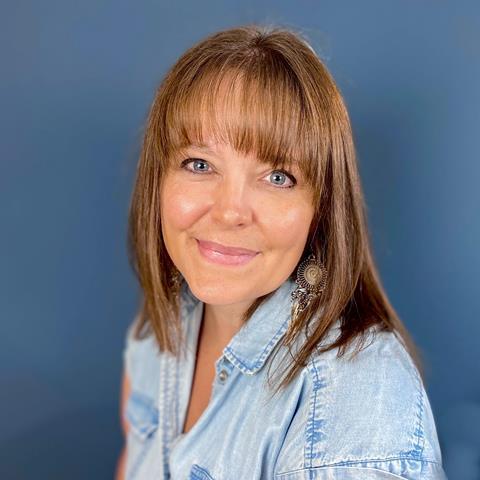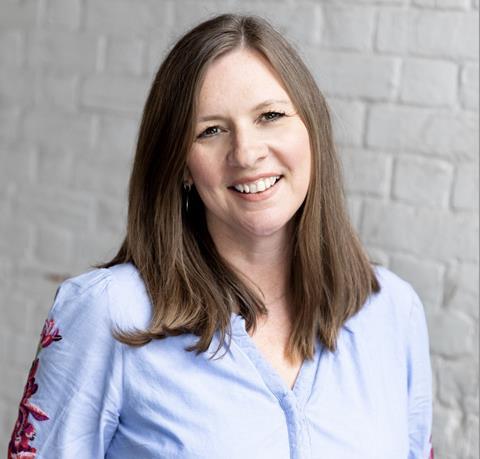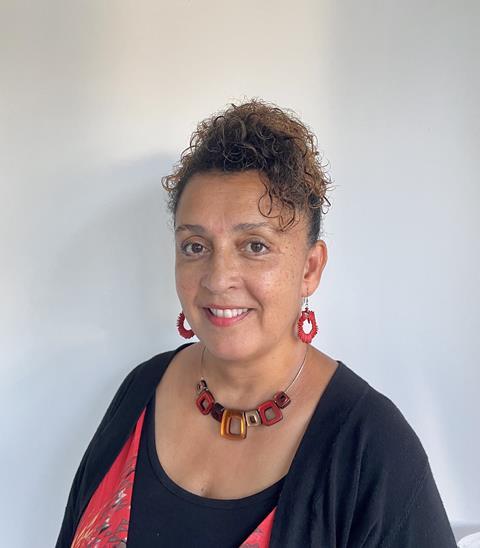As she personally juggles perimenopause with work, family life and church leadership, Claire Musters reports on a conference organised by the Kyria Network to help women understand what still - despite the media coverage it has been given in recent years - appears to be a taboo subject

Around 13 million women are currently peri- or menopausal in the UK – that is the equivalent to a third of the entire UK female population. So why is it only recently that the subject has begun to be more widely talked about, with celebrities such as Davina McCall producing TV shows, books and ongoing online discussions? While it is great the conversation has begun, sadly for many women support, guidance and help can be woefully inadequate still.
What is the menopause?
The menopause is when a woman’s periods stop due to lower hormone levels. It usually occurs sometime during the ages of 45 and 55 (the average age is 51) but can happen earlier. Perimenopause describes the period of time when a woman is experiencing menopausal symptoms but is still having periods. Once a woman has stopped having periods for twelve months she is said to have reached menopause.
Menopause can happen naturally, or be brought on by surgery to remove the ovaries (oophorectomy) or the uterus (hysterectomy), cancer treatments such as chemotherapy, or a genetic reason (which can cause early menopause). Menopause and perimenopause can cause a wide range of physical and psychological symptoms that can last for several years. For black and Asian women menopause can happen earlier and they can have a longer experience of perimenopause too.
These symptoms can start years before periods stop and carry on afterwards in post menopause.
What are the symptoms of menopause?
Here is a list of common symptoms associated with the menopause. You may experience a wide range, or hardly any – every woman’s experience is unique.
Anxiety
Bloating
Brain fog
Chills
Difficulty concentrating
Difficulty sleeping
Dry eyes
Dry mouth
Fatigue
Gut problems
Headaches and/or migraines
Hot flushes
Irregular/heavy bleeding
Irritability
Itchiness
Joint pain
Loss of confidence
Low mood
Low self-esteem
Mood swings
Muscle ache
Night sweats
Palpitations
Rage
Recurrent urinary tract infections
Reduced / loss of sex drive
Skin changes, including dry and itchy skin
Tinnitus
Vaginal dryness and pain, itching or discomfort during sex
Weight gain
Tackling the effects of the menopause in a safe space

Many women are suffering in silence so it was refreshing to see the Kyria Network, which champions Christian women in leadership, recently opening up an online safe space for women to hear from experts and talk to one another. As their CEO, Amy Summerfield explains: “While positive strides have been taken to greater understanding in the support of women’s health, in the area of menopause and perimenopause much still needs to be addressed. Kyria’s championing of women leaders in all aspects of life is at the heart of our mission, therefore any matter which affects women leaders is our issue. Hagar called God the ‘God who see me’ and Jesus’ entire life demonstrated how much he sees, supports and advocates for women. Our theology shows that far from turning away from us in embarrassment, Jesus affirms us in every stage of our lives.”

Executive leadership and menopause coach Jo Ibbott spoke first, commenting that, while “we’ve seen an exponential rise in people talking about menopause, women are still saying: ‘I want to feel that I’m not isolated and alone. I want to understand what’s going on. I need answers to my questions.’ So there still seems to be a gap.”
Jo went on to describe losing the ability to multi-task, finding reading and absorbing information more difficult and losing concentration, phrases, words, names, which can contribute to a feeling of loss of confidence. She spoke about how difficult it can be to recognise “because the problem with perimenopause is that these symptoms can creep up on us. They can also look a lot like other things, or come at a time when we’re juggling all sorts of other issues. Perhaps we’re empty nesters, or carrying the burden of care responsibility for our ageing parents. And so we were not prioritising our own health and taking notice of what’s going on.”
Around 13 million women are currently peri- or menopausal in the UK – that is the equivalent to a third of the entire UK female population
She recognises that she was fortunate to have a women’s health specialist GP who really listened and provided advice, treatment and support: “So I’m on HRT (hormone replacement therapy) now, I exercise regularly (which helps my mental wellbeing), I eat far more cleanly (more natural, less processed food). And I prioritise self-care – quiet time away from life to do things that renew me.”
She went on to enthuse: “Today I love going into workplaces, organisations and churches to provide menopause awareness. Churches should be at the forefront of this conversation as this is a pastoral care issue.”
Menopause and the workplace
Nearly one million women have left their workplace due to menopausal symptoms. One in four feel they can’t talk about the menopause at work, while 59 per cent have taken time off work due to symptoms.

Jayne Saul-Paterson is an executive career coach. She unpacked some of the stats around women, menopause and the workplace: “Women aged 50 to 60 are the fastest-growing economically active group in the UK. So we’re in the workplace during perimenopause, menopause and post menopause in far greater numbers for all sorts of reasons, including the rise in pension age and increased life expectancy.”
Sadly, eight in ten women say their workplace has no basic support for them.
Jayne encouraged us all to start having honest conversations with our managers, if we feel safe doing so. She reiterated that it is not unreasonable to ask for adjustments, such as flexible work, working in or access to a private space, working from home, asking for practical support and checking on a company’s menopause policy.
Some organisations have recognised the value of a support network and have set up menopause cafés, as well as menopause champions.
It is encouraging to see more organisations championing women at this stage in their lives. It is encouraging to see more organisations championing women at this stage in their lives, although recent research indicates that it is often women leaders themselves who are paving the way for this but they often feel unable to access the support they themselves need. While the conversation is opening up, there is still a long way to go. If you are at this stage in life, I want to share with you the sentiments that Jo brought on the night:
“I would really love to see more women empowered, able to articulate this time of life and continue in God’s plan for them through midlife and beyond. I don’t believe God wants us to hit midlife and fall off a cliff. I believe he wants us to live life in its fullness and to keep serving and actually really enjoy what he’s got for us.”
You can join the Kyria network: kyrianetwork.com
Want to read more? Make sure you’re subscribed to Woman Alive to read the new menopause column starting in 2024!


































No comments yet